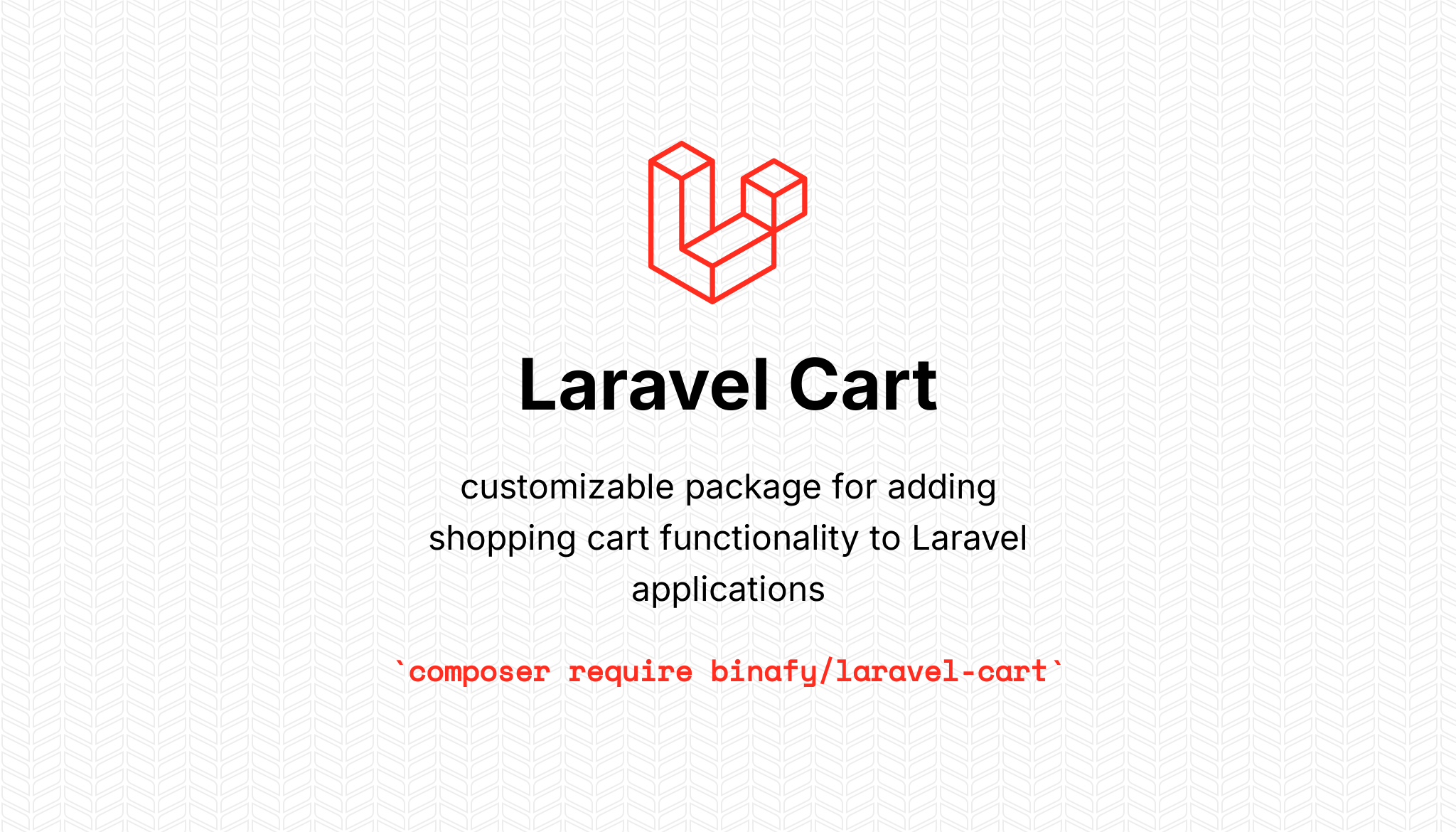The Laravel Cart is a highly customizable and flexible package that integrates basket functionality into your Laravel application. It simplifies storing and managing cart items, supporting multiple item types and quantities. It is ideal for e-commerce platforms to create carts, attach items, and manage them efficiently. Installation is straightforward via Composer, and it offers robust features like secure item storage, easy cart manipulation, and seamless integration with your existing Laravel app.
- Secure card information storage and management
- Support for multiple payment gateways
- Recurring payment and subscription management
- Robust validation and error handling
- Highly customizable and flexible architecture
You can install the package with Composer:
composer require binafy/laravel-cartIf you want to publish a config file, you can use this command:
php artisan vendor:publish --tag="laravel-cart-config"If you want to publish the migrations, you can use this command:
php artisan vendor:publish --tag="laravel-cart-migrations"For convenience, you can use this command to publish config, migration, and ... files:
php artisan vendor:publish --provider="Binafy\LaravelCart\Providers\LaravelCartServiceProvider"After publishing, run the php artisan migrate command.
For storing a new cart, you can use Cart model:
use \Binafy\LaravelCart\Models\Cart;
$cart = Cart::query()->firstOrCreate(['user_id' => $user->id]);If you want to store items for cart, first you need to create a cart and attach items to cart:
$cart = Cart::query()->firstOrCreate(['user_id' => $user->id]);
$cartItem = new CartItem([
'itemable_id' => $itemable->id,
'itemable_type' => $itemable::class,
'quantity' => 1,
]);
$cart->items()->save($cartItem);If you may to access the items of one cart, you can use items relation that exists in Cart model.
There is no need to use any Interface or something for itemable.
If you want to access to itemable in CartItem, you can use itemable relation:
$cartItem = new CartItem([
'itemable_id' => $itemable->id,
'itemable_type' => $itemable::class,
'quantity' => 1,
]);
$cartItem->itemable()->first(); // Return Model InstanceCart::query()->firstOrCreateWithStoreItems(
item: $product,
quantity: 1,
userId: $user->id
);If you may to store multiple items for a cart, you can use storeItems method:
$items = [
[
'itemable' => $product1,
'quantity' => 2,
],
[
'itemable' => $product2,
'quantity' => 1,
],
[
'itemable' => $product3,
'quantity' => 5,
],
];
$cart = Cart::query()->firstOrCreate(['user_id' => $user->id]);
$cart->storeItems($items);If you may to delete an item for a cart, you can use removeItem method:
$items = [
[
'itemable' => $product1,
'quantity' => 2,
],
[
'itemable' => $product2,
'quantity' => 1,
],
[
'itemable' => $product3,
'quantity' => 5,
],
];
$cart = Cart::query()->firstOrCreate(['user_id' => $user->id]);
$cart->removeItem($product1);If you may to delete all items from a cart, you can use emptyCart method:
$items = [
[
'itemable' => $product1,
'quantity' => 2,
],
[
'itemable' => $product2,
'quantity' => 1,
],
[
'itemable' => $product3,
'quantity' => 5,
],
];
$cart = Cart::query()->firstOrCreate(['user_id' => $user->id]);
$cart->emptyCart();Thanks to all the people who contributed. Contributors.
If you discover any security-related issues, please email [email protected] instead of using the issue tracker.
The changelog can be found in the CHANGELOG.md file of the GitHub repository. It lists the changes, bug fixes, and improvements made to each version of the Laravel User Monitoring package.
The MIT License (MIT). Please see License File for more information.
